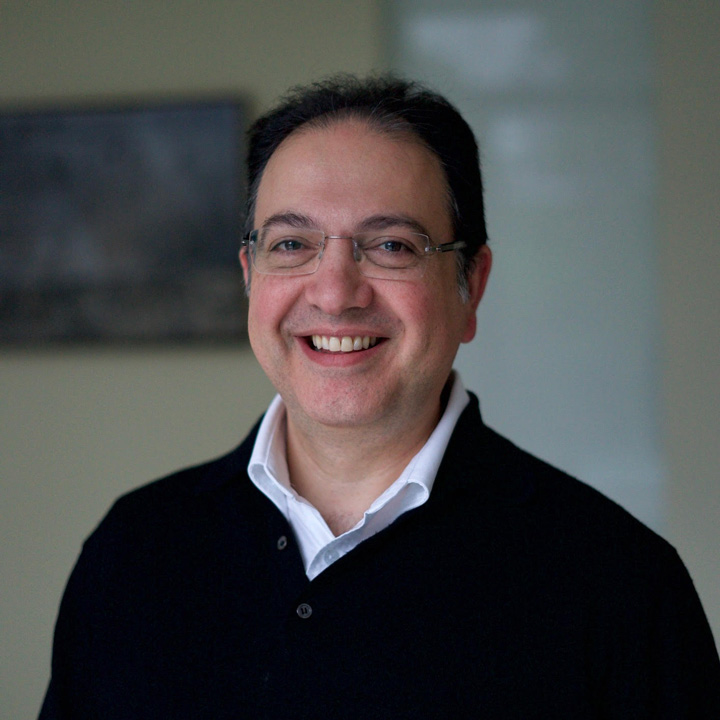From remembering the systematic persecution of his Baha’i community as a child in Iran, to actively working for the betterment of the world from his home in Australia, Mehrdad’s journey towards entrepreneurship began with the realization that he had the freedom, and the duty, to question social assumptions.
In this episode of “Moments of Meaning,” Sean Hinton speaks to Mehrdad Baghai, an advisor, investor and social entrepreneur. As a young Baha’i in Tehran, Mehrdad grappled with the confusing consequences of superstition and religious persecution.

“If people didn’t know who you are, they would treat you like a normal person. But in those days, [with] the prejudice against Baha’is — maybe not as bad as it is today, but it was certainly there — Baha’is were considered… ‘unclean’ or ‘untouchable.’ And so there were moments in my school education or others you’d run across, for example, teachers who didn’t feel they could touch you, or would touch you with the rubber tip of a pencil so that they wouldn’t be tarnished by your uncleanliness. That’s a real puzzling thing for a kid: why is it that fairly well-intentioned, good-meaning, intelligent people believe this idea that some people are untouchable?”
At the age of 15, then living in Toronto, Mehrdad discovered the following passage from a letter written by Shoghi Effendi, who succeeded Abdu’l-Baha as head of the Baha’i Faith and was the great-grandson of its prophet and founder, Baha’u’llah:
“The call of Baha’u’llah is primarily directed against all forms of provincialism, all insularities and prejudices. If long-cherished ideals and time-honored institutions, if certain social assumptions and religious formulae have ceased to promote the welfare of the generality of mankind, if they no longer minister to the needs of a continually evolving humanity, let them be swept away and relegated to the limbo of obsolescent and forgotten doctrines. Why should these, in a world subject to the immutable law of change and decay, be exempt from the deterioration that must needs overtake every human institution? For legal standards, political and economic theories are solely designed to safeguard the interests of humanity as a whole, and not humanity to be crucified for the preservation of the integrity of any particular law or doctrine.”
“When I read this passage, it really raised a big question for me,” Mehrdad recalls. He began to ask himself “Why is it that these historical doctrines, these social assumptions and religious formulae get perpetuated in societies? Why is it that people don’t question them and say, ‘Look, whose interest is it serving that a minority group is considered unclean, and is being denied certain rights of citizenship?’ And why is it that more people don’t ask whether or not this philosophy, this doctrine, is actually appropriate anymore?”
Mehrdad says that the passage struck a chord and made him realize that he didn’t have to take things for granted — that he had the freedom to question anything. “It was an incredibly liberating, eye-opening thing for me as a 15-year-old, to suddenly have all the rules of society be something that I could question, and maybe rethink.”
Today, this passage by Shoghi Effendi has become Mehrdad’s go-to guidance when it comes to deciding whether something is contributing to the betterment of the world. He asks himself questions based on Shoghi Effendi’s words: does this activity “promote the welfare of the generality of mankind”? Does it “safeguard the interests of humanity as a whole”?
As an advisor, investor and social entrepreneur based in Sydney, Australia, the passage also informs his professional life. In this episode, Mehrdad explains how it has guided his work with High Resolves, the non-profit organization for which he is a co-founder, as well as his contributions to society. “This whole idea of more disruptive strategies, of organizations transforming themselves, is way more important than it even was a couple of decades ago. And yet, what ends up happening is that it’s very easy for prevailing assumptions about the world or prevailing strategies to just be perpetuated.”
For Mehrdad, the passage highlights the importance of asking these questions. “Why do we do the things we do? And why should we keep doing it this way? And I think not enough of us ask questions like that.”
“Moments of Meaning” is a podcast where Sean Hinton speaks to people from all walks of life whose lives have been profoundly affected by the writings of the Baha’i Faith. They share the quotes that inspired them and delve into the story of that moment of meaning and the powerful changes it caused.

Comments
Sign in or create an account
Continue with Googleor